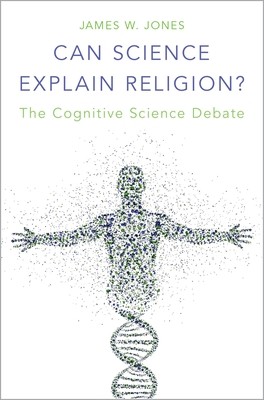
- We will send in 10–14 business days.
- Author: James W Jones
- Publisher: Oxford University Press, USA
- ISBN-10: 0190249382
- ISBN-13: 9780190249380
- Format: 14.5 x 21.1 x 2.3 cm, hardcover
- Language: English
- SAVE -10% with code: EXTRA
Reviews
Description
The "New Atheist" movement of recent years has put the science-versus-religion controversy back on the popular cultural agenda. Anti-religious polemicists are convinced that the application of the new sciences of the mind to religious belief gives them the final weapons in their battle against irrationality and superstition. What used to be a trickle of research papers scattered in specialized scientific journals has now become a torrent of books, articles, and commentary in the popular media pressing the case that the cognitive science of religion can finally fulfill the enlightenment dream of shrinking religion into insignificance, if not eliminating it altogether. James W. Jones argues that these claims are demonstrably false. He notes that cognitive science research is religiously neutral; it can be deployed in many different ways in relation to the actual belief in and practice of religion: to undermine it, to simply study it, and to support it. These different approaches,
Jones suggests, reflect the background assumptions and viewpoints brought to the interpretation of the data.
EXTRA 10 % discount with code: EXTRA
The promotion ends in 21d.02:04:09
The discount code is valid when purchasing from 10 €. Discounts do not stack.
- Author: James W Jones
- Publisher: Oxford University Press, USA
- ISBN-10: 0190249382
- ISBN-13: 9780190249380
- Format: 14.5 x 21.1 x 2.3 cm, hardcover
- Language: English English
The "New Atheist" movement of recent years has put the science-versus-religion controversy back on the popular cultural agenda. Anti-religious polemicists are convinced that the application of the new sciences of the mind to religious belief gives them the final weapons in their battle against irrationality and superstition. What used to be a trickle of research papers scattered in specialized scientific journals has now become a torrent of books, articles, and commentary in the popular media pressing the case that the cognitive science of religion can finally fulfill the enlightenment dream of shrinking religion into insignificance, if not eliminating it altogether. James W. Jones argues that these claims are demonstrably false. He notes that cognitive science research is religiously neutral; it can be deployed in many different ways in relation to the actual belief in and practice of religion: to undermine it, to simply study it, and to support it. These different approaches,
Jones suggests, reflect the background assumptions and viewpoints brought to the interpretation of the data.


Reviews